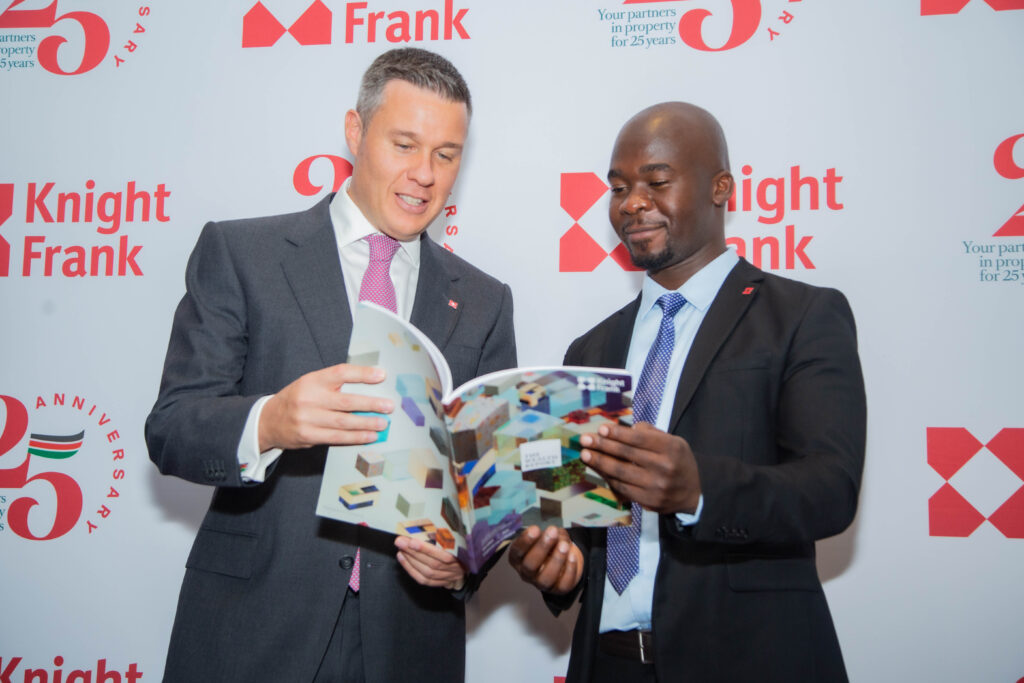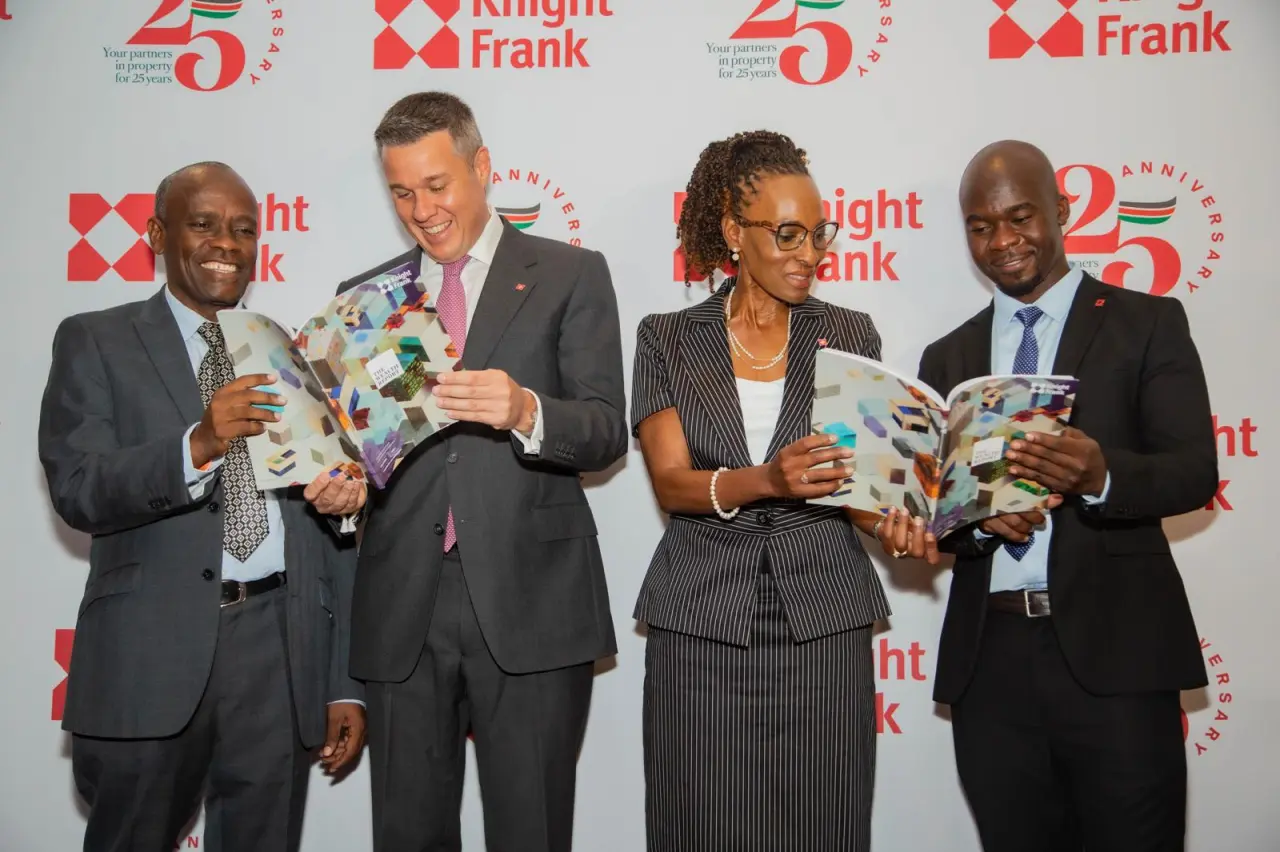
Mark Dunford,CEO Knight Frank Kenya,Liam Bailey,Global Head of Research and Editor-in-Chief of The Wealth Report,Knight Frank
- Knight Frank Kenya Releases H1-2024 Market Update: Inflation decline, and shilling recovery causes mixed impacts on Kenya’s property market;
Knight Frank Kenya, a leading real estate agency, has unveiled its highly anticipated Kenya Market Update H1 2024, offering a comprehensive analysis of the country’s economic and real estate landscapes. The report provides in-depth insights into the performance and trends across various sectors, including the macro-economy, capital markets, office space, retail, residential, industrial and infrastructure, and alternative markets.
MACRO ECONOMY
The Kenyan economy showed resilience in H1 2024, highlighted by a decline in inflation and a significant recovery of the Kenyan Shilling. Inflation rates dropped from 9.59% in October 2022 to 4.6% in June 2024, the lowest since October 2020. This drop has boosted confidence in the economy, despite prevailing economic challenges. The Kenyan Shilling appreciated by 24.43%, trading at KES 131 to the USD by June 2024, after starting the year at its weakest point (KES 163 to the USD).
Knight Frank Kenya’s CEO, Mark Dunford, commented, “The significant decline in inflation and the rebound of the Kenyan Shilling are promising indicators of economic stability. However, persistent current account deficits and the burden of public debt continue to exert pressure on the shilling. The real estate sector faces growth challenges due to high financing costs and reduced demand for certain assets.”

In H1 2024, the Central Bank of Kenya raised its base lending rate from 12.5% to 13%, aligning with global trends to curb inflation and attract foreign investments. This increase has, however, driven up the cost of capital, impacting real estate developers and contributing to a subdued supply of prime real estate properties. The few real estate entities listed on the Nairobi Securities Exchange struggled to attract investors, reflecting the broader challenges faced by the sector.
- Industrial & Infrastructure
Kenya’s industrial sector continues to grow, driven by the rising population and demand for commodities. Export Processing Zones (EPZs) and Special Economic Zones (SEZs) are key strategies to attract investments in the industrial sector. Significant developments include the opening of a 100,000 sqm textile park at Nairobi Gate Industrial Park and the construction of new data centers to meet the growing demand for quality internet services.
Charles Macharia, Senior Researcher at Knight Frank Kenya, stated, “Kenya’s journey toward industrialization and economic growth hinges on strategic investments in industrial sectors and infrastructure, including the establishment of Special Economic Zones and Export Processing Zones.
While advancements in technology and connectivity bolster its position as Africa’s Silicon Savannah, challenges such as high public debt and climate resilience must be navigated to achieve sustainable development and improve the livelihoods of its citizens.”

- Offices
The office sector in Nairobi remained stable, with prime rents holding at USD 1.2 psft per month. The sector showed resilience, with prime offices recording an occupancy rate of 77.2% as of June 2024. The return to physical office spaces has been a significant trend, with organizations increasingly preferring physical offices over the work-from-home model.
This has driven the expansion of flexible workspaces, exemplified by IWG’s new offices at Pramukh Towers and Kofisi’s partnership with Workshop17.
Retail;
Retailers have shifted focus towards proximity to residential areas, driven by evolving consumer spending behaviors and the rise of e-commerce.Major retailers like Quickmart and Naivas have continued their expansion, with new outlets opening across the country. Prime retail rents in established malls remained strong, ranging from KES 600 to KES 700 psft per month.
Residential;
The prime residential market has demonstrated resilience, with sale prices increasing by 6.2% and monthly prime rents rising by 2.25% in H1 2024. Buyers are seeking value for money, driving developers to offer high-quality residences that meet the expectations of an increasingly discerning clientele.
 Branded residences continue to be in high demand, appealing to affluent buyers seeking luxury and exclusivity.
Branded residences continue to be in high demand, appealing to affluent buyers seeking luxury and exclusivity.
Hospitality;
The hospitality sector bounced back strongly from the challenges of the COVID-19 pandemic, with international tourist arrivals surpassing pre-pandemic levels. The sector’s positive performance was underpinned by Kenya’s strategic shift towards becoming a premier business and conference destination within Sub-Saharan Africa.
Alternative Market;
Investment in alternative asset classes, such as education and student accommodation, continued despite challenging macro-economic conditions. Nova Pioneer Schools divested their Tatu City assets to Heri Holdings Limited, and Acorn Holdings Limited secured USD 180 million to support the development of additional purpose-built student accommodations.









